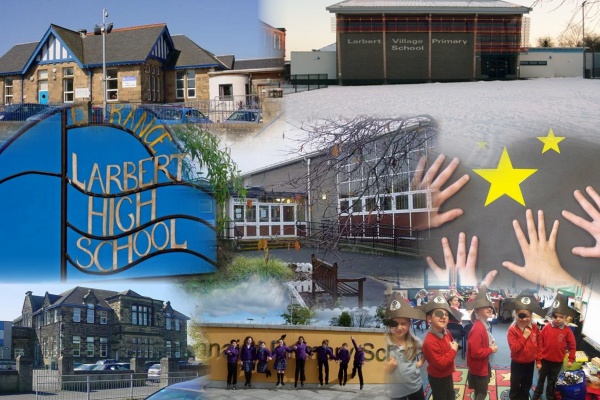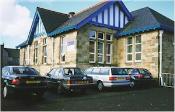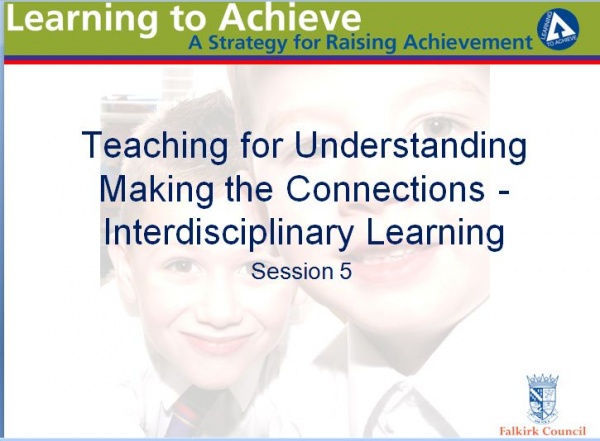 Yvonne McBlain of Falkirk Curriculum Support Team was thrilled to attend the first of a series of cross-sector cluster interdisciplinary planning sessions on Tuesday 17th September 2013. As chair of the Commonwealth Games Interdisciplinary Project sub-group, Linda-Anne Reid worked with colleagues to co-ordinate this collegiate planning. Early year’s practitioners and primary 1 teachers met in Stenhousemuir PS, first level teachers met in Carron PS, and second and third in Kinnaird PS. All staff were given relevant planning materials and information in advance, including the cluster plan, NAR planning flow chart, NAR planning flow chart instructions and Falkirk Community Trust/Active Schools Going for Glasgow Accreditation paper. Isobel Edmond provided early level practitioners with a very clear introductory overview of the potential benefits of this interdisciplinary learning context. Morag Carson then explained that each of the 3 hour-long planning sessions would involve same stage groups planning within 3 bundles of E & Os. This means that the Larbert cluster will generate at least 3 interdisciplinary plans per level which meet experiences and outcomes from: Social subjects & Expressive Arts, Social subjects & Technology, & Social subjects and Science. They are more than happy for these plans to be made available across the authority when complete. Once these groups were established, their first task was to identify the small bundle of E & Os they felt could be progressed by this context, for their learners. Yvonne and Linda-Anne enjoyed a whistle-stop tour of the nursery and primary 1 groups, and then nipped up to Kinnaird PS to pop into the second and third level groups. The staff involved had already made choices about their E & Os , and begun to consider learning intentions, and the best activities to develop knowledge, understanding and skills within the Commonwealth Games context. There will be 2 further planning sessions on 30th October and 21st November, but some groups have opted to do one double session instead. Although clearly linking into national events taking place in 2014, this way of working across-cluster offers potential benefits on many levels: the planning of robust interdisciplinary learning, development of understanding of skills progression, and the sharing of practice generally. All in all, a really active, purposeful form of collegiate professional learning!
Yvonne McBlain of Falkirk Curriculum Support Team was thrilled to attend the first of a series of cross-sector cluster interdisciplinary planning sessions on Tuesday 17th September 2013. As chair of the Commonwealth Games Interdisciplinary Project sub-group, Linda-Anne Reid worked with colleagues to co-ordinate this collegiate planning. Early year’s practitioners and primary 1 teachers met in Stenhousemuir PS, first level teachers met in Carron PS, and second and third in Kinnaird PS. All staff were given relevant planning materials and information in advance, including the cluster plan, NAR planning flow chart, NAR planning flow chart instructions and Falkirk Community Trust/Active Schools Going for Glasgow Accreditation paper. Isobel Edmond provided early level practitioners with a very clear introductory overview of the potential benefits of this interdisciplinary learning context. Morag Carson then explained that each of the 3 hour-long planning sessions would involve same stage groups planning within 3 bundles of E & Os. This means that the Larbert cluster will generate at least 3 interdisciplinary plans per level which meet experiences and outcomes from: Social subjects & Expressive Arts, Social subjects & Technology, & Social subjects and Science. They are more than happy for these plans to be made available across the authority when complete. Once these groups were established, their first task was to identify the small bundle of E & Os they felt could be progressed by this context, for their learners. Yvonne and Linda-Anne enjoyed a whistle-stop tour of the nursery and primary 1 groups, and then nipped up to Kinnaird PS to pop into the second and third level groups. The staff involved had already made choices about their E & Os , and begun to consider learning intentions, and the best activities to develop knowledge, understanding and skills within the Commonwealth Games context. There will be 2 further planning sessions on 30th October and 21st November, but some groups have opted to do one double session instead. Although clearly linking into national events taking place in 2014, this way of working across-cluster offers potential benefits on many levels: the planning of robust interdisciplinary learning, development of understanding of skills progression, and the sharing of practice generally. All in all, a really active, purposeful form of collegiate professional learning!
Category: Interdisciplinary Learning
Bo’ness Children’s Fair Festival
 Daniel Barrie, Quality Improvement Officer with Falkirk Council Education Improvement Team attended the Bo’ness Children’s Fair Festival on Friday 28th June.
Daniel Barrie, Quality Improvement Officer with Falkirk Council Education Improvement Team attended the Bo’ness Children’s Fair Festival on Friday 28th June.
This retinue this year were pupils from St Mary’s Primary School and the theme for the fair was “The Railway Children”.
Well done to Mrs Hanlon, staff, pupils and parents who had worked very hard in preparing for the fair day – all that effort was very worthwhile – everyone looked fantastic and the crowing ceremony was very enjoyable.
Congratulations also to all of the Bo’ness schools for the excellent entertainment provided by the presentees who performed very well and looked fantastic.
Even the less than favourable weather couldn’t take away from “the best day of the year”
Tapestry Masterclass – Making Thinking Visible
Yvonne McBlain was joined by a range of colleagues from Falkirk Education Service at the Tapestry Masterclass : Making Thinking Visible on 16th May. Mark Church was one of the main speakers – he is part of Project Zero at Harvard University. He suggested that schools should be learning cultures for adults, just as classrooms are for children. He posed a range of questions such as: Why does classroom and school culture matter to the learning that happens in this place? Click here to read an extract from “Making Thinking Visible : How to Promote Engagement, Understanding, and Independence for All Learners” by Mark Church, Ron Ritchhart & Karin Morrison, 2011. Chris McIlroy then delivered a presentation entitled “Seeing what they mean” (click here to view his power point notes). Click here to view thinking routine resources produced by Visible Thinking of Harvard Project Zero. Unfortunately, Yvonne couldn’t stay to hear Anne Pearson, Graeme Logan and Frank Lennon in the afternoon but it would be great to hear comments below from those who were there and can fill in the gaps.
Airth Primary Staff use Teaching for Deep Learning Session 5
 Yvonne McBlain, Support Teacher effective learning and teaching, facilitated a collegiate session with teachers at Airth Primary School using session 5 from the Falkirk Teaching for Deep Learning Programme. This session uses an interdisciplinary learning quiz to help evaluate existing practice. Staff involved said it was useful to “discuss how we effectively plan and deliver interdisciplinary learning, as well as highlighting our next steps.” In addition, the session “defined the different types of interdisciplinary learning and the need to make it obvious what skills were being used in type 1 and type 2”. Yvonne was able to adjust the content and format of this session so that staff could consider how to track the knowledge, understanding and skills being developed in the interdisciplinary work done at Airth PS. The session resulted in identification of some initial specific tasks for the staff as a whole, as well as individual next steps for teachers which included:
Yvonne McBlain, Support Teacher effective learning and teaching, facilitated a collegiate session with teachers at Airth Primary School using session 5 from the Falkirk Teaching for Deep Learning Programme. This session uses an interdisciplinary learning quiz to help evaluate existing practice. Staff involved said it was useful to “discuss how we effectively plan and deliver interdisciplinary learning, as well as highlighting our next steps.” In addition, the session “defined the different types of interdisciplinary learning and the need to make it obvious what skills were being used in type 1 and type 2”. Yvonne was able to adjust the content and format of this session so that staff could consider how to track the knowledge, understanding and skills being developed in the interdisciplinary work done at Airth PS. The session resulted in identification of some initial specific tasks for the staff as a whole, as well as individual next steps for teachers which included:
Think more about type 1 interdisciplinary learning and its place in my class
Look for type 1 IDL in the experiences and outcomes
Continue to encourage children to make connections between curricular areas.
Click to take a look at the power point notes for Session 5 , and here to take a look at the whole Falkirk Teaching for Deep Learning Programme in Glow.
Primary Probationers Go Outdoors!
 Jane Jackson, Outdoor Learning Development Officer, Falkirk Council Curriculum Support Team, has been working with the primary probationer teachers exploring how outdoor learning can become an integral part of their planning and teaching.
Jane Jackson, Outdoor Learning Development Officer, Falkirk Council Curriculum Support Team, has been working with the primary probationer teachers exploring how outdoor learning can become an integral part of their planning and teaching.
There is no better way to demonstrate the range of ways that outdoor learning can contribute to CfE than by getting out there and doing it yourself. The probationers took part in a wide range of activities, after having got the fire going and set up our base for the day.
They all agreed that we have covered many curricular areas with some very simple, fun, exciting activities that could readily be used for further learning back at school.
The main purpose of the session was to challenge participants thinking about outdoor learning and to raise awareness of the benefits of learnng outside the classroom.
Global Storylines Roadshow in Falkirk
Yvonne McBlain and Anne Hutchison from Falkirk Curriculum Support team have worked with Diana Ellis and Marie-Jeanne McNaughton to organise a Global Storylines Roadshow event in Camelon Education Centre between 3.30pm and 5.15pm on 30th May 2013. This event is for primary and nursery practitioners who may be interested in joining a potential Falkirk cohort of teachers accessing this high quality professional learning next session. Diana and Marie-Jeanne will share the content and format of this valuable global citizenship training, as well as the impact it has had on teachers and pupils. A number of teachers in our schools have already expressed a firm interest in being part of this Falkirk cohort. This event is designed to ensure that everyone has a chance to find out more about what is involved. Click here to read the descriptor for this course – applications should be made through your CPD co-ordinator in the usual way. You may also want to visit the Global Storylines website . Here are the thoughts of a teacher and a pupil who have taken part in tha Global Storyline project:
“My confidence in teaching these current issues has really increased and I can now use what I’ve learned to develop Global Citizenship right across different curriculuar areas and incorporate the drama techniques in all the different activities we use.” Principal Teacher
“It makes you think about it, because unless you look at something, it’s quite hard to imagine how people feel in real life, you can’t just step out of drama and go back into real life. When they’re in that position iit puts things into perspective.” 11-year-old pupil.
These testimonials express some of the benefits of applying storyline teaching strategies to progress pupil knowledge and understanding of global citizenship issues.
Creative Conversation with Paul Collard
Gayle Martin, Arts & Culture Offiicer, Curriculum Support Falkirk Council Education has been working in partnership with Clare Hoare at Stirling Council to develop Creative Conversations. The lastest event was led by Paul Collard. Paul has over 25 years experience of working in the arts and is an expert in delivering programmes that use creativity and culture as drivers of social and economic change. He joined the U.K government’s flagship creative learning programme, Creative Partnerships in January 2005 and played a crucial role in clarifying the purpose of Creative Partnerships and streamlining the delivery of the programme in schools. Paul delivered our latest Creative Conversation ‘How do we Capture & Measure Creativity’ on Wed 17th April at the Tollbooth.
Throughout the session Paul discussed how to identify and recognise creativity in order to measure. As part of the Creative Partnerships work in England Cambridge University carried out research examining the pedagogy of creative practice, as part of this they outlined the following:
Pupils need risk for motivation – this gives learners incentive to work. Schools can be too low risk – pupils need high visibility outcomes. High functioning pupils will be physically, socially, emotionally and intellectually engaged equalling high performance pupils.
Other Creative indicators are:
Essential Psychological Needs
Key Ingredients
Defining Creativity
Creativity – What Is It?
Gayle Martin, Arts & Culture Officer, Curriculum Support Falkirk Council is working in partnership with Stirling and Clackmannanshire Council to develop Creative Learning. Gayle recently attended a presentation by Sheila Paige of Education Scotland who is leading Creativity Across Learning, which is a creative review across a range of education establishments in Scotland. The review will complete in June and results will be published in September. As part of this Sheila was able to share how Education Scotland has defined Creativity, which is listed below:
Definitions of Creativity
Creative skills, sometimes referred to as capacities, include being:
- Inquisitive
- Open-minded
- Able to harness imagination
- Able to identify and solve problems
We also define people who have well-formed creative skills as being:
- Confident in their right and ability to influence change
These organisers are used to describe more fully those key learning behaviours which will support the development of these skills and capacities. The following list aims to expand these concepts. It is not exhaustive but includes:
- Being curious
- Registering patterns and anomalies
- Drawing on previous knowledge
- Researching productively
- Formulating good questions
- Defining problems
- Exploring multiple viewpoints
- Functioning with uncertainty
- Lateral thinking
- Hypothesising
- Synthesising and refining multiple options and viewpoints
- Inventing
- Crafting, delivering and presenting solutions
- Applying discipline and resilience
- Evaluating impact and success of solutions
- Identifying next steps in refinement or development of process
We would also expect children and young people to become increasingly:
- Motivated and ambitious for change
- Confident in validity of their own viewpoint
- Able to apply a creative process to other situations
- Able to lead and work well with others
Exploring elements of planning with Denny Early Years Cluster
 On Tuesday 16th April Yvonne McBlain from the Curriculum Support Team worked with 27 early years practitioners from the Denny cluster. She facilitated a workshop which explored how practitioners were integrating essential elements of assessment into their planning of interdisciplinary learning. The workshop gave these practitoners an opportunity to work with their establishment colleagues on 2 “challenges”. These challenges were designed to enable collaborative and individual self-evaluation of planning effective connected learning. They also supported identification of the most relevant next steps for partricipants. The session was designed to generate questions as well as providing access and guidance on next steps. Participants said that the session was “useful” “informative” “made you think” and was “well-designed and enjoyable”. Here is a selection of next steps identified by participants:
On Tuesday 16th April Yvonne McBlain from the Curriculum Support Team worked with 27 early years practitioners from the Denny cluster. She facilitated a workshop which explored how practitioners were integrating essential elements of assessment into their planning of interdisciplinary learning. The workshop gave these practitoners an opportunity to work with their establishment colleagues on 2 “challenges”. These challenges were designed to enable collaborative and individual self-evaluation of planning effective connected learning. They also supported identification of the most relevant next steps for partricipants. The session was designed to generate questions as well as providing access and guidance on next steps. Participants said that the session was “useful” “informative” “made you think” and was “well-designed and enjoyable”. Here is a selection of next steps identified by participants:
Further conversations with colleagues around planning
Think more about what our success criteria will be while planning – which should make evidence and assessment more relevant
Develop team’s ability to identify appropriate learning intentions and success criteria
Review approach to planning
Share with other staff (higher classes in school)









